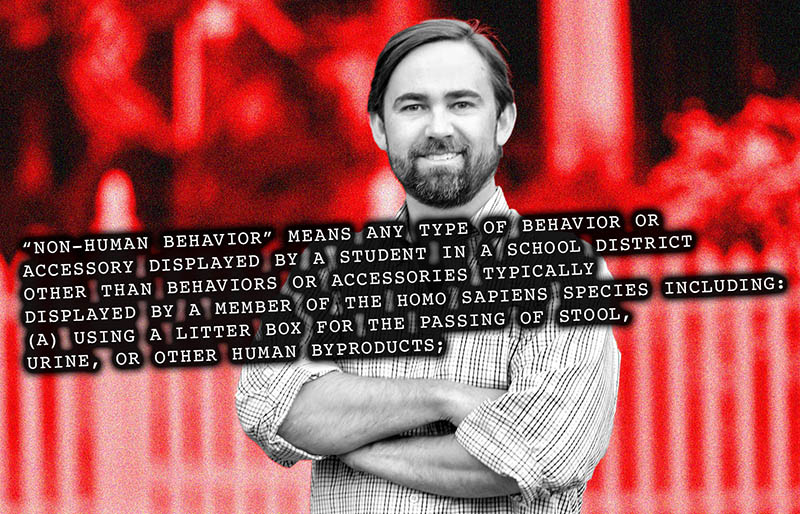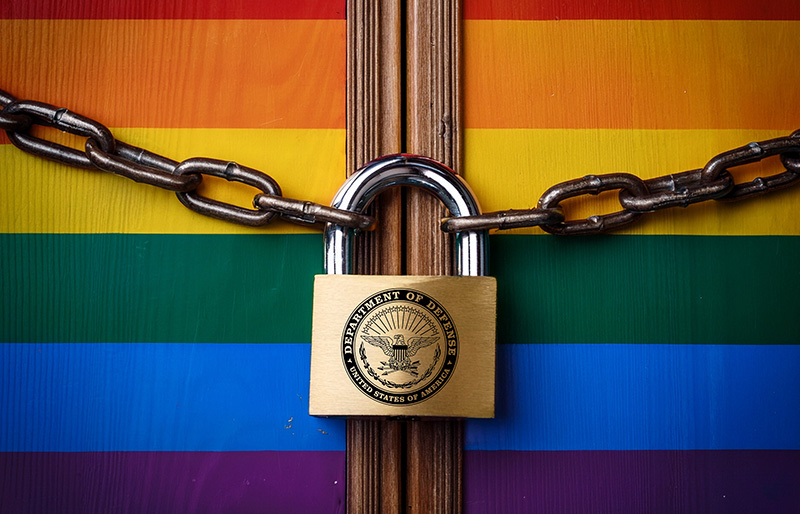Utah’s Restroom “Snitch Line” Overwhelmed by Hoax Reports
A tip line to report instances of people using restrooms that don't match their assigned sex at birth has been flooded with false reports.

Transgender activists have flooded an official tip line with thousands of fake reports to prevent Utah state officials from enforcing an anti-transgender restroom law.
The tip line was set up for citizens to submit reports of possible violations of a new law prohibiting the use of public, multi-user restrooms or changing rooms in schools or government buildings that don’t match a person’s assigned sex at birth.
The idea is simple enough: if a person believes school administrators, teachers, or other authorities have allowed a person to use a facility that aligns with their gender identity, rather than their assigned sex at birth, members of the public may report them to state officials.
Schools or entities found guilty of violating the law who fail to “cure” the problem within 30 days can be fined $10,000 per incident per day. Individual teachers or building administrators could also potentially be subjected to disciplinary measures, though the law does not require them to be.
The tip line was launched on May 1. In the week since, the line has received more than 10,000 submissions, none of which appear legitimate, according to Utah Auditor John Dougall.
Dougall has expressed frustration over having to assign staff to filter through fake complaints as part of his job, and for being blamed by activists for enforcing a law he had no role in passing.
The auditor’s office has encountered many reports that Dougall described as “total nonsense,” and others that he said appear credible at first glance and take much longer to filter out. His staff has spent the last week sorting through thousands of well-crafted complaints citing fake names or locations.
“No auditor goes into auditing so they can be the bathroom monitors,” Dougall told National Public Radio. “I think there were much better ways for the Legislature to go about addressing their concerns, rather than this ham-handed approach.”
Within hours of the publication of information on how to access the tip line — which activists call a “snitch line” — trans activists and their allies from across the U.S. had spread the information on social media.
Many shared the hoax reports they submitted, and encouraged others to follow their lead.
The purpose of submitting the false reports appears to be an effort to make it difficult for state officials to investigate legitimate complaints or instances where a transgender person may have refused to use a multi-user restroom that aligned with their assigned sex at birth.
Erin Reed, a journalist who regularly reports on trans-related issues and legislation, told NPR that there is a collective understanding within the trans community that submitting hoax reports is an effective way to protest the law.
“There will be people who are trans that go into bathrooms that are potentially reported by these sorts of forms, and so the community is taking on a protective role,” Reed said.
“If there are 4,000, 5,000, 6,000 form responses that are entered in, it’s going to be much harder for the auditor’s office to sift through every one of them and find the one legitimate trans person who was caught using a bathroom.”
Similar tip lines in Virginia, Indiana, Arizona, and Louisiana, created for the purpose of submitting complaints about teachers, librarians, and school administrators who may have spoken to students about LGBTQ identities, have also been flooded with false complaints. So has a tip line in Missouri to report clinics suspected of providing gender-affirming health care treatments to minors.
The Virginia and Missouri tip lines were eventually taken down due to the deluge of false complaints and the time it took for officials to filter through them.
The sponsors of the Utah bill, Rep. Kera Birkeland (R-Morgan) and Sen. Dan McCay (R-Salt Lake City), have no plans to change how the law is enforced, and expressed confidence in Dougall’s office to filter out the fake complaints.
“It’s not surprising that activists are taking the time to send false reports,” Birkeland said. “But that isn’t a distraction from the importance of the legislation and the protection it provides women across Utah.”
LGBTQ advocates have warned that the law and tip line will give people license to submit reports that may result in state officials launching investigations into any person, even cisgender individuals using the “correct” restroom, who fails to conform to or abide by stereotypical forms of dress, hairstyle, or outward expression.
Support Metro Weekly’s Journalism
These are challenging times for news organizations. And yet it’s crucial we stay active and provide vital resources and information to both our local readers and the world. So won’t you please take a moment and consider supporting Metro Weekly with a membership? For as little as $5 a month, you can help ensure Metro Weekly magazine and MetroWeekly.com remain free, viable resources as we provide the best, most diverse, culturally-resonant LGBTQ coverage in both the D.C. region and around the world. Memberships come with exclusive perks and discounts, your own personal digital delivery of each week’s magazine (and an archive), access to our Member's Lounge when it launches this fall, and exclusive members-only items like Metro Weekly Membership Mugs and Tote Bags! Check out all our membership levels here and please join us today!


























You must be logged in to post a comment.